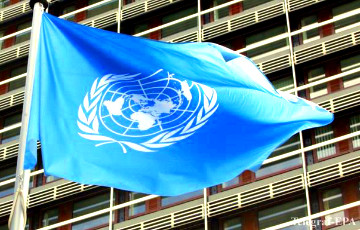UN Suspects Belarusian Regime Of Crimes Against Humanity
68- 18.03.2024, 19:40
- 69,996

There are all grounds for this.
On March 15, 2024, the UN Human Rights Council published a report on the human rights situation in Belarus ahead of and after the 2020 presidential election. The preliminary unedited version states that there are grounds to consider persecution in Belarus as a crime against humanity.
The report addresses alleged human rights violations, information on which the OHCHR collected, compiled, stored and analysed. It also draws conclusions in accordance with the relevant international legal basis and makes recommendations to the government and the international community.
It covers the closing of non-profit organisations, legislative changes, political prisoners and conditions of their detention, including incommunicado detention, repression of the media, revocation of lawyers' licences, expansion of "extremist" lists, searches, arbitrary arrests, torture, deaths during protests and in detention, and forced emigration.
"Starting from 2020 and continuing in 2023, the law enforcement agencies used unjustified and disproportionate force throughout Belarus. This practice was carried out with impunity, with the approval and support of the top leadership, and resulted in serious injuries in dozens of cases and even arbitrary deprivation of life. The Belarusian authorities have neither investigated nor provided any reparation," the authors state.
The OHCHR estimates that since May 1, 2020, more than 5,500 people, including at least 55 children, have been criminally convicted on politically motivated charges. Of the 657 people interviewed since 2020, 29 per cent reported torture and 61 per cent reported ill-treatment. Some victims suffered long-term and even life-changing injuries. These included aneurysms, hearing loss, restricted mobility in shoulder, hip and knee joints, broken bones in arms, legs, nose and spine, and nerve damage. Health consequences like high blood pressure, chronic kidney disease, depression, post-traumatic stress disorder (PTSD), panic attacks and sleep problems. The majority of victims were male, including one person with a disability.
The OHCHR found that those arrested were subjected to severe pressure and violence, in many cases amounting to torture, during the initial interrogation and search for "evidence" in 38 cases in 2022 and 9 cases in 2023. The violence took place after arrest in police cars and/or during interrogation in the offices of the Main Department for Combating Organised Crime in Minsk and police stations in all regions of Belarus.
"In several cases, the detainees were forced to stay in painful uncomfortable positions for long periods of time, and in at least 2 cases, the officers of the Main Department for Combating Organised Crime almost strangled the detainees by putting a mask or a bag over their faces. Physical violence was accompanied by threats, coercion and intimidation, including death threats, gender-based violence, including sexual violence, harm to family members or/and taking away children. Interrogations lasted for hours and were conducted without a lawyer. The OHCHR documented that most of the alleged torture took place in the central office of the Main Department for Combating Organised Crime in Minsk," reads the document.
The OHCHR states that there are grounds to believe that Belarusian security forces committed rape and other forms of sexual and gender-based violence, including sexualised torture and forced nudity.
A case is cited where a woman was denied obstetric care in Minsk pre-trial detention centre No. 1 despite repeated requests and the visible development of her pregnancy.
"KGB investigators referred to her pregnancy to put pressure on her and sent her with death threats to an isolation centre without ventilation. She reported that she lost consciousness and was given medicine before being taken back to her regular cell. That same night, six months pregnant and without any medical attention, she gave birth to a stillborn baby boy in her cell. She was denied official confirmation of pregnancy or stillbirth and threatened to keep quiet," the report said.
"The OHCHR has reasonable grounds to believe that the crime against humanity of persecution has been committed, along with other related acts that can be established as resulting from the human rights violations described," the authors conclude.









